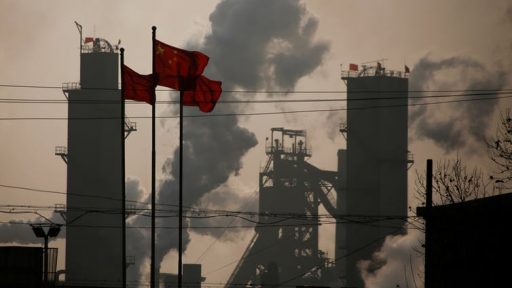- Home
- >
- Fundamental Analysis
- >
- The trade war – bad news for some are good news for other

The trade war - bad news for some are good news for other

Economists like to say that no one wins in a trade war. We may soon find out if they're right. Only hours after U.S. President Donald Trump said he would slap tariffs on a range of Chinese products, China imposed punitive duties on some imports from the U.S. in retaliation for previously announced U.S. tariffs on steel and aluminum. And here we go, down the rabbit hole.
Companies, workers and consumers from both countries are almost certain to get hurt in a tit-for-tat conflict. On the other hand, the carnage could produce big winners elsewhere in the developing world.
On the surface, a disruption of trade might seem a disaster for other countries in Asia. A blow to Chinese exports could ripple through the supply chains that stretch across the region, robbing other economies of growth opportunities and jobs.
At the same time, a U.S.-China trade war will spill over into another ongoing economic battle -- the one between China and its low-wage competitors in global export markets. For many emerging economies, the long-term benefits might well outweigh the short-term damage.
China, the world’s largest exporter, has long been the destination of choice for U.S. and European companies looking to outsource and offshore manufacturing, especially of labor-intensive consumer goods such as clothing, footwear and electronics. As factory wages in China have risen to the highest in emerging Asia, however, other developing countries with lower costs have begun to steal away investment and jobs, helping to promote industrialization and boost growth at home.
Apparel and electronics manufacturers, for instance, have already starteddiversifying production to rivals such as Vietnam and India. Vietnam has been enjoying an export boom, led by sectors traditionally dominated by China, including clothes and mobile phones. Taiwan-based Wistron, famous for assembling Apple gear in China, is expanding its assembly operations in India.
Till now, China has managed to hold on to a surprising amount of low-end manufacturing by offsetting high costs with better infrastructure and more reliable and extensive supply networks. Poorer countries haven't been able to capitalize on cheap wages as much as they should. For example, while U.S. textile and apparel imports from Vietnam and India rose last year, the value of China’s exports remains far larger, with shipments worth nearly $39 billion in 2017.
A wider U.S.-China trade war could accelerate the transition. U.S. companies that rely heavily on imports from China, such as electronics brands and retailers, would be forced to redesign their supply chains around tariffs. Multinationals and their suppliers would look for alternative facilities outside China; some would probably decamp from the mainland altogether for cheaper climes.
This is bad news for China. Even though the government is attempting to upgrade manufacturing into more advanced products, the country still relies on cheap factories to employ lots of low-skilled workers. The sooner apparel and electronics production moves offshore, the more pressure Chinese leaders will face to boost innovation and create new, high-tech export industries.
We still don’t know which Chinese exports will get hit by Trump’s tariffs, so the impact on Chinese factories is hard to predict. And even if the two manage to avoid a protracted confrontation -- behind-the-scenes talks are apparentlyunderway to defuse the current dispute -- the threat of a widespread disruption of trade could undercut the confidence of U.S. companies in China as a production source, convincing them to diversify faster.
The real loser in all this, though, is likely to be Trump’s trade policy. Though some factory production in China may “reshore” to the U.S., much of it probably won’t. Such labor-intensive assembly would simply be too expensive in high-wage America. That means Trump could find closing the trade deficit to be much like a game of Whac-a-Mole. As he pounds down the deficit in China, it'll bulge in other countries as production hops from place to place.
Indeed, that’s already happening. As Vietnam has become a more important player in supply chains, the U.S. trade deficit with the country has swelled -- to $38 billion last year, three times larger than in 2011. In a world of global production, tariffs may never hit their target.
 Trader Aleksandar Kumanov
Trader Aleksandar Kumanov Read more:
If you think, we can improve that section,
please comment. Your oppinion is imortant for us.











